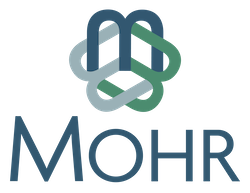- Can anyone join MOHR?
- How do I find an agency near me (link)?
- Do your members support choice?
- Who pays for services for people with disabilities?
- Do I have to be on government assistance to get services?
- Our (son/daughter) is on a waiting list. When might we expect service?
- How do I know if I have a disability?
- What ages do you serve?
- How does Minnesota compare to other states for disability services?
- Do your members support fair wages for people with disabilities?
-
Can anyone join MOHR?
MOHR membership is composed of nonprofit organizations serving people with disabilities. Associate memberships are considered for businesses or organizations whose products or services elevate the mission of MOHR members.
-
MOHR members cover the state. Go to the Membership tab and click on a member name in your region to learn more about each organization.
-
Do your members support choice?
Yes. MOHR members are the state’s premier developers of innovative day and employment programs for people. Go to the Membership tab and click on a member name in your region to learn more about the offerings by each organization.
-
Who pays for services for people with disabilities?
People receive services through publicly funded programs that are managed by the Minnesota Department of Human Services
-
Do I have to be on government assistance to get services?
No. Though the majority of people participating in programs receive funding through publicly funded programs managed by the Minnesota Department of Human Services, many organizations accept private pay for services. Please check with your local providers.
-
Our (son/daughter) is on a waiting list. When might we expect service?
MOHR members are dedicated to extending programs as funding, staffing, and facilities become available. Please check with your local provider on optional services available, such as virtual or in-home support.
-
How do I know if I have a disability?
You can access information regarding a personal assessment through school personnel, medical, and/or professionals at your local county disability or family service department. MOHR members work with people who qualify for home and community based services because of a developmental disability, chronic medical condition, acquired or traumatic brain injury, or physical disability.
-
What ages do you serve?
Minnesota offers programs for all ages through schools, care facilities, residential providers, and organizations. Your local case manager or MOHR member can direct you to the appropriate age-related program.
-
How does Minnesota compare to other states for disability services?
MOHR members will continue to advocate for better policies and funding that enable people to live as independently as possible and to provide innovative offerings to support choice and personal achievement. Working in collaboration with legislators, employers, the Minnesota Department of Human Services and local communities, MOHR believes Minnesota is among the leading providers of programs for people with disabilities.
-
Do your members support fair wages for people with disabilities?
Yes. MOHR believes all persons who desire employment should have the ability to work. MOHR member employment specialists develop employment plans that incorporate preferences, skills, wages, and options for people to have fulfillment in employment and feel valued in their daily lives. Please check with your local provider for employment options available.
